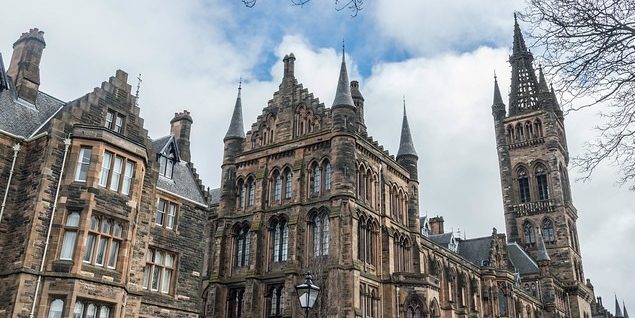University of Glasgow will spend £20m on slave trade reparations
The University of Glasgow has announced that they will spend £20 million to make amends for its historical links to the transatlantic slave trade.
They signed an agreement with the University of the West Indies to fund a joint centre for development research, which will host events and sponsor work to raise public awareness about the history of slavery.
The money will be spent over the next 20 years, with funding mainly from research grants and donations.
Professor Sir Hilary Beckles, vice-chancellor of the Jamaican institution, described the reparations as a “bold, moral, historic step”.
Professor Sir Anton Muscatelli, principal and vice-chancellor of Glasgow, said: “Talking about any institution’s or country’s historical links to slavery can be a difficult conversation but we felt it was a necessary one for our university to have. While you can’t change the past, you can change (its) consequences.”
The announcement comes three years after the university first commissioned a report into its connections to those who may have benefitted from the proceeds of the slave trade.
The report was published last year, with findings presenting that the university received bequests and gifts in the 18th and 19th centuries from people involved in the slave trade. These gifts were worth as much as £200m today.
The authors of the report recommended raising awareness about Glasgow’s historical links to slavery with exhibitions, as well as other measures including a scholarship for BAME students.
Talking about any institution’s or country’s historical links to slavery can be a difficult conversation but we felt it was a necessary one for our university to have…While you can’t change the past, you can change (its) consequences
– Sir Anton Muscatelli
The authors of the report also recommended the creation of a centre to study historical slavery and its legacies, alongside the creation of a professorship for research into historic slavery and reparative justice.
In October last year, Glasgow announced that their new £90m learning hub will be named after their first African American medical graduate, James McCune Smith. The move was initiated by the university’s “reparative justice programme”.
Several Glasgow professors were key figures in the city’s abolitionist movement. Professor John Millar sent two anti-slave trade petitions to Parliament in 1788 and 1792.
Other UK universities have been the focus of protests in recent years over their ties to the slave trade and powerful colonial figures.
In 2016, the University of Oxford came under fire in 2016 for refusing a statue of Cecil Rhodes, who bequeathed a large sum to Oriel College and is considered one of the founders of South African racial segregation.
The University of Bristol also rejected a petition to change the name of its Wills Memorial Building in 2017. The building honours its first chancellor, whose family profited from tobacco farming using slave labour.

Comments